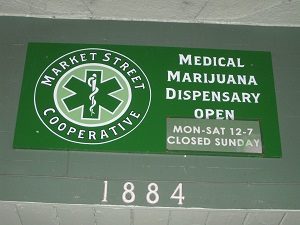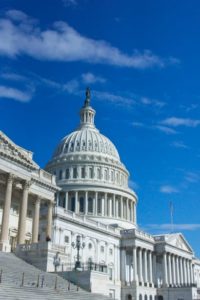 The medical marijuana industry today in California is in a period of transition. Laws vary tremendously across localities and are in transition at the state level. It is a time of opportunity but also of risk because variations across state and local jurisdictions make it easy to run afoul of the law. Those involved with or looking to enter into the medical marijuana industry need to proceed with caution and, ideally, with expert legal advice.
The medical marijuana industry today in California is in a period of transition. Laws vary tremendously across localities and are in transition at the state level. It is a time of opportunity but also of risk because variations across state and local jurisdictions make it easy to run afoul of the law. Those involved with or looking to enter into the medical marijuana industry need to proceed with caution and, ideally, with expert legal advice.
Contents
- The Medical Marijuana Program Act
- The 2018 California Medical Marijuana Regulation and Safety Act
- How to Open a Dispensary in California
- Evaluating Business Plans and Opportunities
- Obtaining a Dispensary License in California
- Buying and Selling Medical Marijuana Dispensaries
- Other Business Opportunities
- Growing for Dispensaries
- Marijuana Delivery Services
- Federal Law Currently Prohibits the Distribution of Marijuana in All States
- The Value of an Experienced Medical Marijuana Lawyer
The Medical Marijuana Program Act
Currently, California medical marijuana collectives and cooperatives, which are sometimes referred to as dispensaries, are governed and regulated by Health and Safety Code Section 11362.775, which is part of the Medical Marijuana Program Act (“MMPA”). The MMPA was enacted in 2003 and contains several provisions designed to 1) “promote uniform and consistent application of the [Compassionate Use Act] among the counties within the state”, and 2) to “enhance the access of patients and caregivers to medical marijuana through collective, cooperative cultivation projects.”
Important points about current California medical marijuana law include the following:
1) The MMPA extends decriminalization of medical marijuana to cover not only the cultivation and possession of medical marijuana by patients and their primary caregivers, but also possession for sale, transportation, and maintaining a location for the sale or use of medical marijuana (that is, a medical marijuana dispensary).
2) The MMPA provides immunity from arrest by means of a voluntary identification card system whereby individuals and primary caregivers can obtain identification cards designating them as eligible for medical marijuana.
3) The MMPA sets limits on the amount of medical marijuana that can be legally possessed to no more than eight ounces of dried marijuana per qualified patient.
4) The MMPA allows for local regulation and permits cities and counties to impose greater restrictions on medical marijuana collectives than those imposed by the state law.
Because of this last provision, current medical marijuana law is extremely complicated: what is legal in one city (for example, delivering medical marijuana to the homes of collective members) might easily be illegal in another.
Finally, it is important to note that cultivation or distribution of medical marijuana for profit is still prohibited under the MMPA.
The 2018 California Medical Marijuana Regulation and Safety Act
Starting in 2018, the current patchwork system will be superseded by the California Medical Marijuana Regulation and Safety Act, a set of three California bills that will create a state law-regulated medical marijuana regime. All aspects related to the cultivation, dispensing, manufacture, and transport of medical marijuana in California will require state licensure and a local approval.
The most important point about the new law for currently existing businesses is the provision of the law stating that when it comes to issuing licenses, the state will prioritize facilities and entities already operating in good standing with local jurisdictions. To be legal at the state level in 2018, then, it is incumbent on medical marijuana-related businesses to become legal at the local level now.
How to Open a Dispensary in California
The first step to opening a medical marijuana dispensary is to form a patient association that meets the regulatory requirements. The Medical Marijuana Program Act has a number of requirements regarding medical marijuana dispensaries:
1) Your organization must be a non-profit;
2) All medical marijuana customers must be members of the organization;
3) The organization must be operated for the benefit of its members (as opposed to for profit).
If at any time you are not in compliance with these regulations, you may not be in compliance with the MMPA and could be open to felony marijuana distribution charges.
Second, a medical marijuana dispensary must obtain some sort of local permit or other authorization. Without local approval, your medical marijuana dispensary will be an illegal business. Most cities in California ban medical marijuana dispensaries. Those cities that have elected to regulate marijuana dispensaries typically have in-depth and complicated licensing and permitting processes. Since 2007, Nelson Hardiman has helped people navigate the process of obtaining a land use permit or business license to operate a marijuana business. Nelson Hardiman has assisted clients in many cities, including San Diego, Berkeley, Malibu, Palm Springs, and the city of Los Angeles (where Nelson Hardiman lawyers actually co-authored Proposition D, the local law that governs dispensaries).
dispensary will be an illegal business. Most cities in California ban medical marijuana dispensaries. Those cities that have elected to regulate marijuana dispensaries typically have in-depth and complicated licensing and permitting processes. Since 2007, Nelson Hardiman has helped people navigate the process of obtaining a land use permit or business license to operate a marijuana business. Nelson Hardiman has assisted clients in many cities, including San Diego, Berkeley, Malibu, Palm Springs, and the city of Los Angeles (where Nelson Hardiman lawyers actually co-authored Proposition D, the local law that governs dispensaries).
To summarize: In order to open a California marijuana dispensary, your business must be appropriately structured to comply with state and local laws, and you must have necessary local approval in order to engage in this type of activity.
It is especially essential that anyone involved in the medical marijuana business in the state of California obtain appropriate local licensing now, because when the Medical Marijuana Regulation and Safety Act law becomes effective in January 2018, state licensure will only be granted to people who have already obtained local licensing. In other words, in 2018, if you are operating legally at the local level, you will be eligible to apply for a license at the state level. If you are not operating legally at the local level, you will not be qualified to apply for a state license.
Evaluating Business Plans and Opportunities
There are certainly business opportunities to be found in the medical marijuana industry in California. But evaluating the viability of a medical marijuana business plan requires in-depth knowledge of a complicated legal environment.
Currently, California law requires medical marijuana dispensaries to be operated on a not-for-profit basis. If you plan on investing in a medical marijuana dispensary with the hope of making immense profits, you are vulnerable to prosecution under criminal law. The legal environment surrounding these dispensaries may change in 2018 by likely making it acceptable to operate medical marijuana-based businesses on a for-profit basis, but, until that time, all medical marijuana dispensaries must be non-profit.
A medical marijuana dispensary business plan must be drafted so as not to run afoul of the nonprofit requirement. Nelson Hardiman lawyers have extensive experience analyzing business plans and can help you evaluate whether a medical marijuana dispensary’s business plan is likely to open its operators to criminal prosecution under current law. Medical marijuana dispensaries that are not operating for the benefit of their patients are open to prosecution. Financially successful dispensaries are especially vulnerable on this score. It is not enough for medical marijuana dispensaries to be structured as a non-profit entity – it is critical that such dispensaries also actually act like a non-profit business. Prosecutors can and have combed through medical marijuana dispensary’s financial records. Dispensaries that are not operated for the benefit of their members are considered drug trafficking organizations and their operators are subject to felony marijuana distribution charges.
The lawyers of Nelson Hardiman can help you evaluate whether a medical marijuana business plan complies with state and local laws.
Currently, illegal medical marijuana businesses outnumber legal dispensaries in California by a large margin. Because such illegal businesses lack proper licensing and permitting, they are eventually shut down by local law enforcement authorities.
Obtaining a Dispensary License in California
A medical marijuana dispensary license is a state license that authorizes an individual or a business to dispense medical marijuana to qualified patients. Many states issue medical marijuana dispensary licenses—for example, Colorado, Washington, Nevada, and Oregon. At this time, the state of California does not hand out medical marijuana dispensary licenses although this will change in 2018.
 Under current California law, medical marijuana dispensary licenses are handled at the local level and are therefore not uniform across the state. By way of examples, medical marijuana dispensaries must obtain a business license in, the City of West Hollywood, a conditional use permit in the City of Malibu, and a conditional use and regulatory permits in the City of Desert Hot Springs. On the other hand, the City of Los Angeles does not issue licenses for dispensaries, but instead provides limited immunity from criminal prosecution for dispensaries that meet the regulatory requirements of Proposition D, which may be asserted an affirmative defense to the criminal charge of operating an illegal dispensary. It is important to note that although the City of Los Angeles issues a business tax registration certificate for medical marijuana collectives, this certificate does not authorize the operation of a medical marijuana dispensary (which must satisfy Proposition D requirements), but is instead simply a way for the city to collect taxes, including from illegal businesses.
Under current California law, medical marijuana dispensary licenses are handled at the local level and are therefore not uniform across the state. By way of examples, medical marijuana dispensaries must obtain a business license in, the City of West Hollywood, a conditional use permit in the City of Malibu, and a conditional use and regulatory permits in the City of Desert Hot Springs. On the other hand, the City of Los Angeles does not issue licenses for dispensaries, but instead provides limited immunity from criminal prosecution for dispensaries that meet the regulatory requirements of Proposition D, which may be asserted an affirmative defense to the criminal charge of operating an illegal dispensary. It is important to note that although the City of Los Angeles issues a business tax registration certificate for medical marijuana collectives, this certificate does not authorize the operation of a medical marijuana dispensary (which must satisfy Proposition D requirements), but is instead simply a way for the city to collect taxes, including from illegal businesses.
Nelson Hardiman has helped people obtain medical marijuana dispensary licenses in a number of cities, including Malibu and Palm Springs, and also has helped numerous dispensaries in Los Angeles satisfy Proposition D’s regulatory requirements. Depending on the city, obtaining a medical marijuana dispensary license in California requires an application and a hearing process.
An important consideration in obtaining a local medical marijuana dispensary license in California is that operating legally at the local level is now going to be critical to operating any California dispensary when the state marijuana laws change in 2018. In particular, as of January 2018, under the Medical Marijuana Regulation and Safety Act, you will typically only be able to obtain a. state license to legally operate a medical marijuana dispensary in California if you have already obtained a local dispensary license or its equivalent.
Buying and Selling Medical Marijuana Dispensaries
Some states, including Washington, Nevada, and Colorado, allow people to sell medical marijuana dispensaries. These are typically highly regulated business transactions for which you need specific approval. There are often also residency requirements surrounding the sale of medical marijuana dispensaries that prevent out-of-state investors from purchasing dispensaries.
As with any business transaction, buying or selling a medical marijuana dispensary puts the buyer and seller in a fixed legal relationship. If you plan to invest in a medical marijuana dispensary or business, you should ordinarily obtain legal representation to navigate the complex regulatory issues around such an investment and protect your interests.
Nelson Hardiman attorneys have worked with investors in states where dispensary owners are allowed to sell their medical marijuana dispensaries and can help owners evaluate how and whether to sell.
If you are a medical marijuana dispensary owner interested in selling your business, you must ensure that the sale complies with the laws regulating permissible sales and transfers. These laws vary from state to state and may require notification to regulators, as well as their approval, before the sale of a medical marijuana dispensary is considered legal. Again, Nelson Hardiman attorneys have expertise in this area and can advise clients accordingly.
Other Business Opportunities
There are a number of opportunities for individuals interested in getting into businesses associated with medical marijuana dispensaries depending on one’s tolerance of the risk in operating businesses the legality of which is unclear under current medical marijuana laws.
If you want to handle marijuana plants, you can become a grower for medical marijuana dispensaries or you can become a manufacturer who makes marijuana edibles for such dispensaries. If your risk tolerance is lower, you can provide ancillary services such as leasing commercial space to a medical marijuana dispensary with such leases usually commanding rents well over the prevailing market rate because of the added regulatory risk for the landlords. There are also marketing and business consulting opportunities in the medical marijuana field similar to those available with any small business.
Under the Medical Marijuana Regulation and Safety Act taking effect in January 2018, there will also be opportunities for providers providing ancillary transportation and lab testing services. Currently, transportation of medical marijuana is not regulated at the state level and those engaged in such transportation are vulnerable to criminal prosecution. While the current MMPA allows some types of transportation, law enforcement likes to arrest medical marijuana transporters and let the courts sort it out. Starting in 2018, however, the new state law will authorize licensed transporters to transport medical marijuana for processing and sale to end users and will also authorize laboratory testers to determine that medical marijuana products are free from pesticides and mold.
Nelson Hardiman attorneys have represented virtually every type of person who works in the medical marijuana industry, from individual doctors to dispensary operators to people who run websites to people who produce nutrients to put in the soil to grow marijuana. Whatever your question about the medical marijuana industry, Nelson Hardiman attorneys can help you evaluate it from a risk and legal perspective.
Growing for Dispensaries
Under current California state law, all medical marijuana must be grown by members of a given collective for the sole purpose of sharing and  distributing such marijuana to collective members Since criminal law also applies to marijuana growing, medical marijuana growers and dispensaries need to protect themselves by clearly documenting the legality of their relationship by:
distributing such marijuana to collective members Since criminal law also applies to marijuana growing, medical marijuana growers and dispensaries need to protect themselves by clearly documenting the legality of their relationship by:
1) Agreeing that the grower is growing only enough marijuana for members of the collective to use for medicinal purposes; and
2) Maintaining necessary records to assure that they are cultivating in compliance with nonprofit requirements.
Nelson Hardiman can help memorialize the relationship between growers and dispensaries, which can be essential to protecting both growers and the collective in the event of legal trouble. The legality of growing medical marijuana is contingent on the legality of the medical marijuana dispensary for which the grower cultivates – if a grower is supplying product to a medical marijuana dispensary that is not operating legally, the grower will likely lose legal protection under existing medical marijuana laws as well
Starting in 2018, there will be a variety of different state licenses for growing medical marijuana under the Marijuana Regulation and Safety Act. Many cities in California are currently looking to change their licensing laws and become more open to commercial cultivators. Under current law, however, large-scale commercial cultivation of marijuana is illegal in most municipalities.
Marijuana Delivery Services
The delivery of medical marijuana is legal under California state law, but local laws vary. For example, the city of Los Angeles has a ban on the delivery of medical marijuana so anyone operating a delivery service within the city of Los Angeles is violating local law. On the other hand, other cities expressly authorize delivery. For example, in Malibu if you are licensed to have a medical marijuana dispensary, you can also run a concurrent delivery service. Nelson Hardiman attorneys have experience in this area and can offer legal advice about the legality of delivery in a given situation.
Federal Law Currently Prohibits the Distribution of Marijuana in All States
Although California and 22 other states, as well as the District of Columbia, have passed laws authorizing medical marijuana use, federal law still criminally prohibits the possession and distribution of marijuana in the United States for any purpose based on Congress’s determination in 1970 that marijuana has no accepted medical use.
 Under the federal Controlled Substances Act, growing, distributing, dispensing, and possessing marijuana with intent to distribute is a federal felony crime punishable by imprisonment (with the term varying based on the amount of marijuana involved) and engaging in financial transactions involving money from marijuana sales is also illegal under federal money laundering laws. While the current U.S. administration has generally instructed federal authorities not to investigate and prosecute whose actions “are in clear and unambiguous compliance with existing state laws providing for the medical use of marijuana,” this policy provides no defense to a federal criminal charge of marijuana distribution against an individual who is operating a medical marijuana dispensary that is otherwise legal under state law.
Under the federal Controlled Substances Act, growing, distributing, dispensing, and possessing marijuana with intent to distribute is a federal felony crime punishable by imprisonment (with the term varying based on the amount of marijuana involved) and engaging in financial transactions involving money from marijuana sales is also illegal under federal money laundering laws. While the current U.S. administration has generally instructed federal authorities not to investigate and prosecute whose actions “are in clear and unambiguous compliance with existing state laws providing for the medical use of marijuana,” this policy provides no defense to a federal criminal charge of marijuana distribution against an individual who is operating a medical marijuana dispensary that is otherwise legal under state law.
In addition, the U.S. government’s law enforcement priorities regarding medical marijuana could change under a Republican administration.
Anyone involved in the medical marijuana industry is therefore at risk for criminal prosecution under federal law even though prosecution of individuals involved in medical marijuana activities that are lawful under state law is currently not a federal priority. However, in order to reduce the likelihood that medical marijuana activities will pop up on the radar of a federal criminal investigation, it is critical that such activities be clearly legal under state medical marijuana laws.
The Value of an Experienced Medical Marijuana Lawyer
An experienced medical marijuana attorney is essential to anyone operating in any capacity in the medical marijuana industry. As detailed above, all medical marijuana activities are still illegal under federal level, and there are numerous criminal statutes at the state and local level that criminally prohibit the growing and distribution of marijuana outside the strict state requirements governing legal medical marijuana activities . If you are involved in the medical marijuana industry, you are therefore walking a tightrope between what is legal and what is illegal at every step.
Nelson Hardiman attorneys, including attorney Aaron C. Lachant, have been working with cannabis providers and other business organizations dealing with cannabis related issues since 2007.  They have represented collectives and cooperatives, physicians who make recommendations, individual growers, landlords, independent labs, property owners, investors and lenders who finance marijuana businesses, transportation companies, internet and technology companies, trade groups, hydroponic equipment manufacturers, and many others who need sophisticated advice in this complex area. In addition, Nelson Hardiman attorneys have worked with multiple cities and municipalities on drafting medical marijuana regulations, including with the City Attorney for the City of Los Angeles on Proposition D.
They have represented collectives and cooperatives, physicians who make recommendations, individual growers, landlords, independent labs, property owners, investors and lenders who finance marijuana businesses, transportation companies, internet and technology companies, trade groups, hydroponic equipment manufacturers, and many others who need sophisticated advice in this complex area. In addition, Nelson Hardiman attorneys have worked with multiple cities and municipalities on drafting medical marijuana regulations, including with the City Attorney for the City of Los Angeles on Proposition D.
Nelson Hardiman attorneys have extensive experience in medical marijuana defense. They have defended medical marijuana dispensaries against criminal prosecutions, fought for dispensaries’ rights against the City of Los Angeles, represented physicians in California medical board investigations, and have successfully compelled the return of seized marijuana. Nelson Hardiman has also overturned search warrants because law enforcement did not respect medical marijuana law and have obtained complete dismissals of criminal charges in Proposition D cases bought against dispensaries by the City Attorney’s Office in Los Angeles.
Medical marijuana law in California is complicated and in flux. With major changes coming in 2018, current medical marijuana businesses should adapt now to obtain local licensure and prepare for a more regulated environment. Investors in the medical marijuana field should know that there are opportunities, but also significant financial and regulatory risks. Expert legal advice can help individuals and businesses navigate this complex regulatory environment and thrive under current and upcoming law.